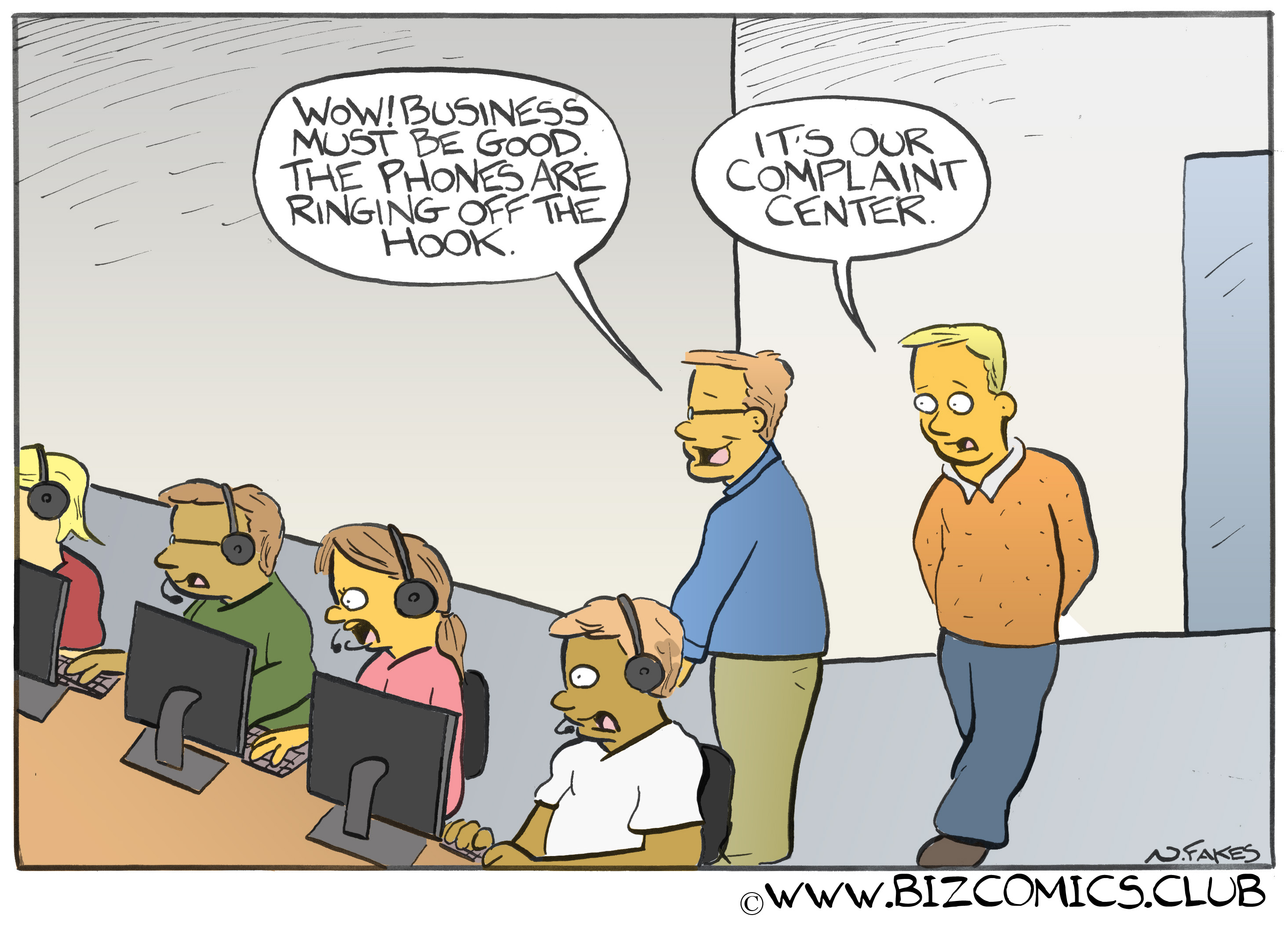In a previous cartoon and its accompanying blog post, we wrote about spam and one of its particular manifestations — surveys. It turns out we may have been a tad shortsighted. That’s right. In addition to being annoying for the parties who receive them, particularly if they’re unsolicited, surveys also can be troublesome sources of customer dissatisfaction for those who conduct them. Here’s why:
Let’s say you’ve invented the proverbial better mousetrap. Let’s say it’s earned the Good Housekeeping Seal of Approval for its ability to keep your house free from mice, along with their dander, their fleas, their hair, and their droppings. For good measure, let’s also say your new mousetrap is approve by PETA because it traps the little varmints without harming or killing them.
Now let’s say your contraption sells 20 million units in its first 10 minutes on the market. You’re so pumped up from your success that, in an attack of magnanimity, you decide to survey all the people who bought your new trap to find out how they’d want you to improve it.
Finally, let’s say the majority of the survey’s respondents want you to offer a complementary (and complimentary) service by which you dispatch a vehicle to their homes, pick up the mice they’ve captured in your traps, transport them to the Humane Society or the local chapter of the ASPCA, and oversee the proper rehabilitation of the little critters now that they’ve been so mercifully apprehended.
Is this example ludicrous? Of course it is. As a matter of fact, it’s deliberately ridiculous. But its point abides: If you ask people to tell you what they want, they will. If you ask people to tell you what they want, they tell you, and you don’t give it to them, they’ll be royally miffed. At the risk of mixing our mammalian metaphors, if you’ve already achieved success, your best met may be to let sleeping dogs lie. At the very least, be careful what you ask for.
If you opt not to be careful, be prepared to staff up your complaint center.

